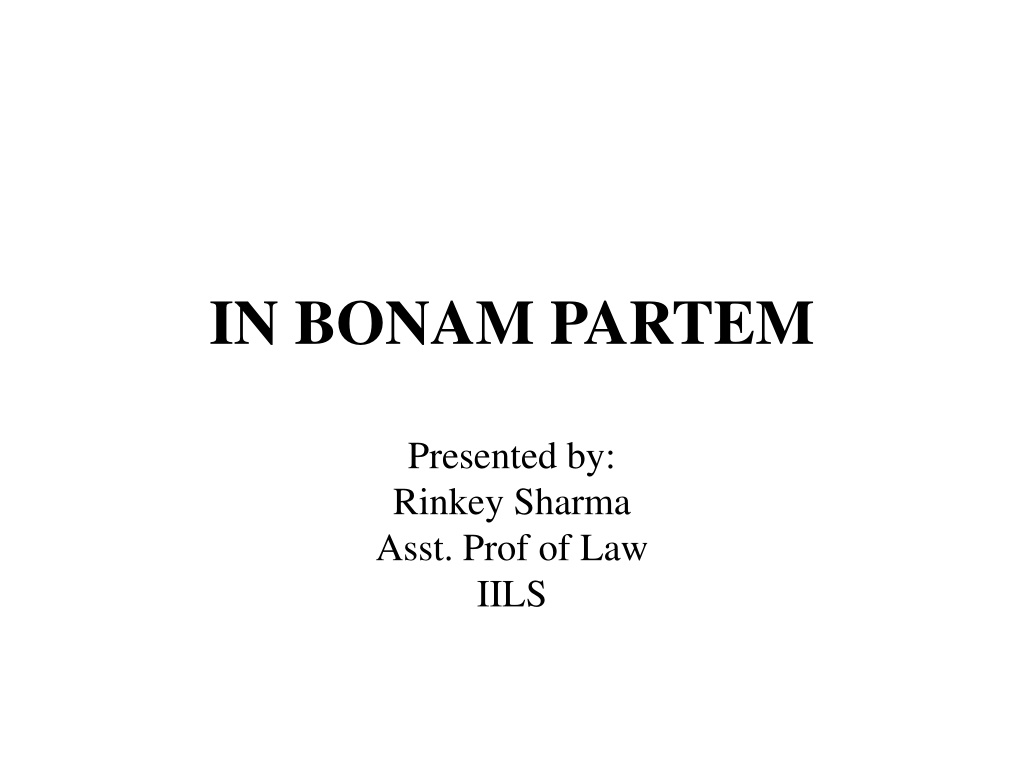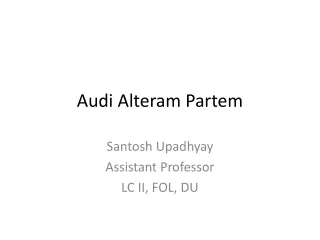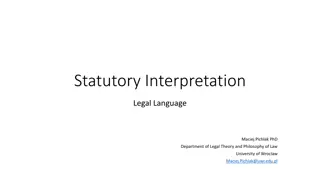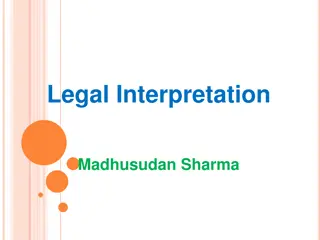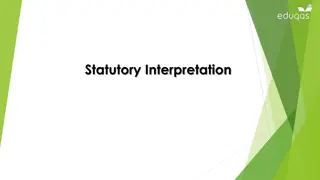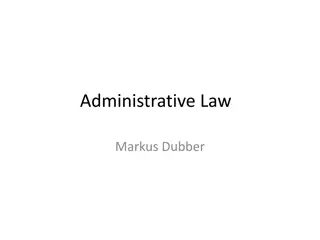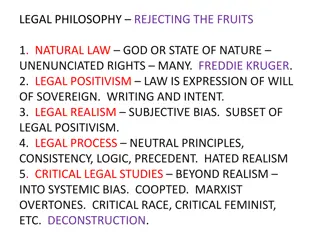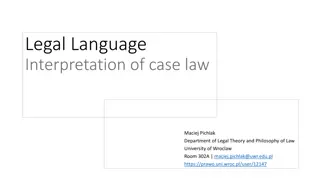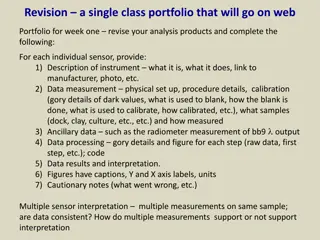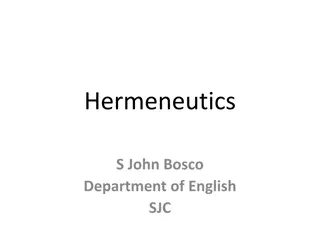Understanding Bonam Partem in Legal Interpretation
Bonam Partem, meaning words in their lawful and rightful sense, has significant implications in legal interpretation. It entails that statutes should be interpreted based on their legitimate and recognized meanings. The principle is demonstrated in various legal cases, emphasizing the importance of interpreting laws in a lawful manner to uphold justice and fairness.
Download Presentation

Please find below an Image/Link to download the presentation.
The content on the website is provided AS IS for your information and personal use only. It may not be sold, licensed, or shared on other websites without obtaining consent from the author. Download presentation by click this link. If you encounter any issues during the download, it is possible that the publisher has removed the file from their server.
E N D
Presentation Transcript
IN BONAM PARTEM Presented by: Rinkey Sharma Asst. Prof of Law IILS
MEANING The word Bonam Partem means that words used in the statute are to be taken in their lawful sense and rightful sense. What is Lawful Sense ? The word Lawful sense implies what is legitimate and recognised by the law. For example: Article 19(1) of the constitution guarantees right to take up any profession. The implication is lawful profession and not unlawful profession.
When an Act, for instance, gives a certain efficacy to a fine levied on a land, it only means a fine lawfully levied. Similarly, a covenant by a tenant to pay all parliamentary taxes, is construed to include such as he may lawfully pay, but not the landlord s property tax, which it would be illegal for him to engage to pay.
In leading R v. Hulme (1870 LR 5 QB 377), involved the interpretation of words in Bonam Partem. In this case the statute provided that "Where any witness shall answer every question relating to the matters aforesaid, " Commissioners appointed to inquire into corrupt election practices should issue him with a certificate which would entire him to certain immunities. The case turned on the meaning of the words, "shall answer every question ", "Does that mean, " asked Blackburn J (at pp 384,385), "If he shall give an answer in fact, thought it may be false to his knowledge; though it may be a matter of ridicule, and turning the whole commission and inquiry into contempt, can it be intended that if the witness gives an answer which is transparently false, he should get the immunity?
Held: It was held that it was not so intended. "Whenever the legislature in this Act requires a person to answer question the meaning is that heshall answer them truly, to the best of his knowledge and belief " Only then would he be entitledto the statutory certificate. The principle, that where an Act refers to a thing being done, it is to be taken as referring to the thing being lawfully done, has been applied in several recent cases,and hence revolves around the spirit of Bonam Partem.
A similar Indian case which holds relevance here is Birla Group Holdings Ltd Vs. Assessee (2009). This involved the words of the legislature tax payable on the basis of any returns , in the Indian Income TaxAct of 1961. Construing the words in their least aggravated sense, i.e., in Bonam partem, it was deemed to have meant the tax payable on the basis of all legal returns and revenue, in the sense,disclosing correct income. Consequentially, the Income Tax eventually came to be excepted to the rule of Bonam partem, in lieu of money laundering.
INCOME EXCEPTION TOABOVE RULE In India, there is an exception to above rule. This refers to illegal profits which are subject to income tax assessment. TAX ACT, 1961 : AN
